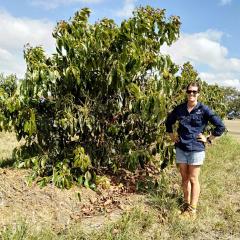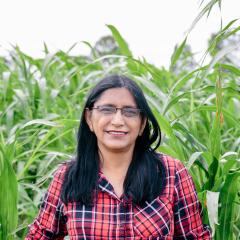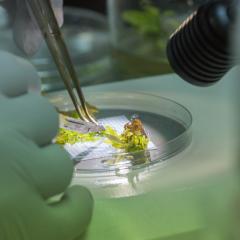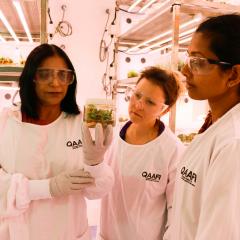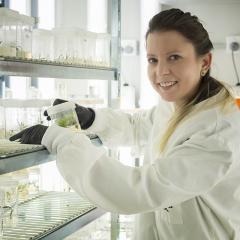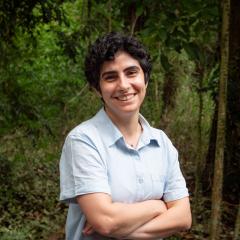The world’s first Hass avocados produced by trees grafted on tissue culture plants are tasty, healthy, and disease-free, say University of Queensland scientists, who pioneered the break-through technology.
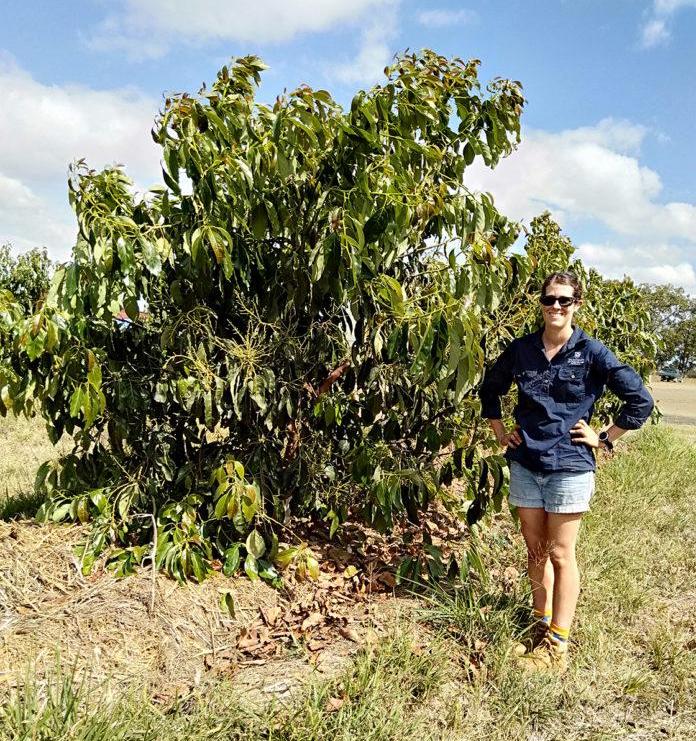
“Trials show that the clonal tissue culture rootstocks are yielding high-quality fruits in the field,” said project leader Professor Neena Mitter, Director of UQ’s Centre for Horticultural Science.
Economic modelling conducted by the University of Southern Queensland with the Department of Agriculture and Fisheries as part of the project suggests that the tissue culture technology offers a potential 21 per cent return on investment to avocado growers.
“This is a Queensland-owned and invented technology platform validated from lab to orchard, and is now progressing to commercial roll out,” Minister for Agricultural Industry Development and Fisheries and Minister for Rural Communities Mark Furner said.
“Queensland produces the majority of Australia’s avocados and this innovation offers opportunities for growers across the state.”
The tissue culture technology allows for up to 500 times more plants to be grown from a single cutting in 10-12 months – significantly reducing both resources required and the time it currently takes to produce a plant for sale in an orchard.
“We have been successful in rooting multiple industry-relevant avocado rootstocks using our meristem or plant stem cells-based approach to multiply plants,” Professor Mitter said.
In trials funded by the Queensland Government’s Advance Queensland Innovation Partnerships, tissue culture plants produced in a laboratory and then grafted with Australia’s main avocado variety, Hass, have been successfully established in fields in Bundaberg, Tully and Lakeland and two locations in Western Australia – Pemberton and Busselton.
Childers avocado grower Lachlan Donovan has been growing laboratory-propagated avocado trees for the past three years and said that he was pleased with the tree growth and harvest.
“In the past the delay between ordering new trees and planting has been two to three years,” Mr Donovan said.
“The biggest advantage of this new technology for us is to be able to get desired rootstocks and varieties into production quickly.”
A survey of Australian avocado industry members undertaken by Central Queensland University indicated that 72 per cent cannot access enough plants and nearly half indicated they already have the skills and knowledge to work with tissue culture trees.
The global avocado market was valued at USD 9.14 billion in 2020, with consumers embracing the health benefits of the fruit, which contains fibre, healthy fats and important nutrients.
“This is a sustainable technology that reduces the need for water, fertilisers, pest management processes and farming land used to produce rootstocks,” Professor Mitter said.
“With traditional avocado propagation, trees must be grown in fields for seed production.
“Another advantage with tissue culture propagation, particularly in this day and age, is that the movement of soil and the biosecurity risks this entails can be eliminated.”
Avocado growers will sample the first Hass avocados grown from the tissue culture propagation at an industry update on 7 June 2021, as part of the Hort Connections conference in Brisbane.
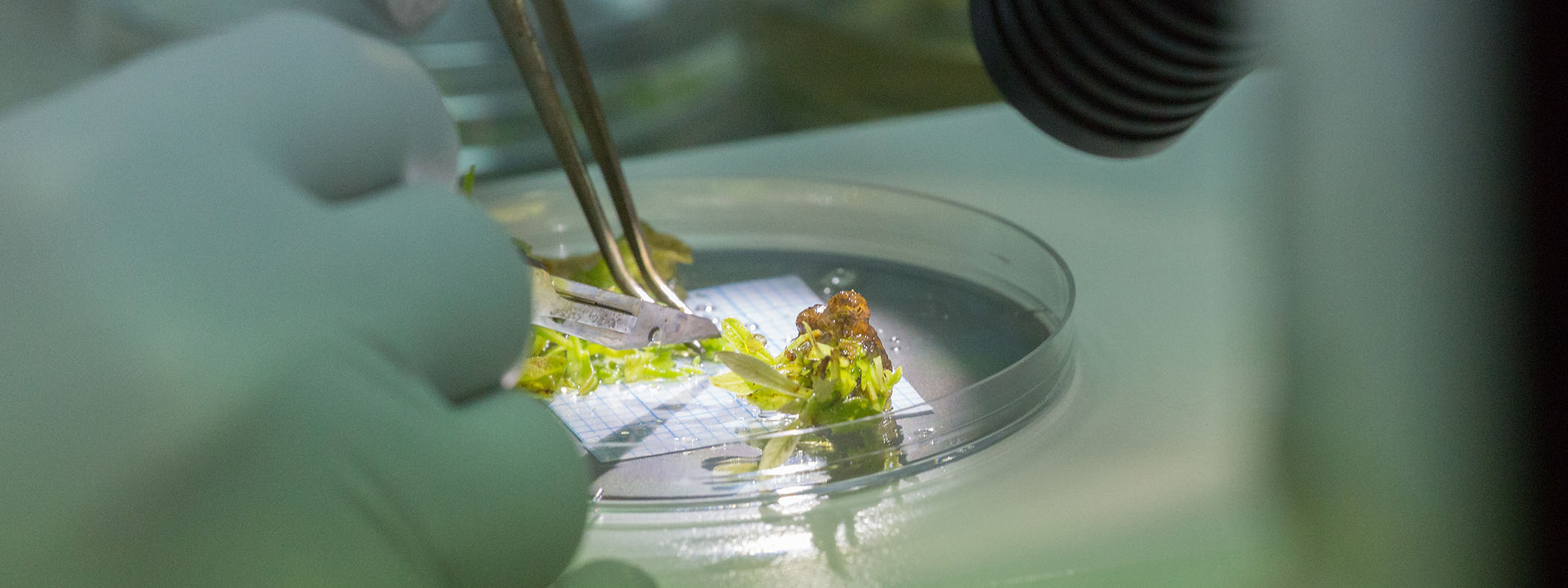
Avocado at a Glance:
- Avocados are native to Mexico and Central America but are now grown in many different regions across the globe. They take a significant amount of resources to cultivate, since a grafted avocado tree takes between three and five years before it begins bearing commercial quantities of fruit.
- In 2019, the first draft of the avocado genome was published – involving Professor Neena Mitter and her team at The University of Queensland. The avocado has around 25,000 protein-coding genes – roughly the same as humans.
- Global production of avocado reached an estimated 5.7 million tonnes in 2017, representing a 2 percent increase from 2016.
- Mexico harvested some 2.2 million tons of avocados in 2018, making that country the top producer of avocados worldwide.
- Indonesia was ranked the fourth top producer of avocados in 2017, with Australia ranked around 20th or 21st in terms of size – contributing to around 1% of global production.
- Most avocados grown in Australia are consumed by the domestic market, with Australians consuming 3.8 kilograms of avocados per person, per year.
- Just 3,195t, or 3.7% of Australia’s avocado production is exported mostly to Singapore, Malaysia and Hong Kong.
- Queensland produces the majority of Australia’s avocados, accounting for 55%, with Western Australian growers producing 30%, followed by New South Wales, South Australia, Victoria and Tasmania.
- In Australia, avocados are produced almost all year round due to the range of climates and conditions in eight major avocado growing regions. Hass is the predominant variety at 81% of the national production, and next is a green-skin variety called Shepard, at 16%.
More information: Avocados Australia
Contact: Professor Neena Mitter, Director, Centre for Horticultural Science, Queensland Alliance for Agriculture and Food Innovation, The University of Queensland, E n.mitter@uq.edu.au, M +61 434 628 094 W. qaafi.uq.edu.au/tissue-culture or Margaret Puls, QAAFI media M. +61 0 419 578 356, qaaficomms@uq.edu.au
Images and videos for media: Download photos and video footage from Dropbox.
Project Information Pack: Tissue culture for Australian avocados, 17 June 2021.
Research impact article: Researchers smash avocado bottleneck, 17 June 2021.
Avocado tree wait times smashed thanks to world-first rootstock trial: UQ scientists have come up with a technique that grows avocados faster. ABC News Online, ABC Radio Brisbane.
The Queensland Alliance for Agriculture and Food Innovation is a research institute at The University of Queensland, established with and supported by the Queensland Department of Primary Industries.

